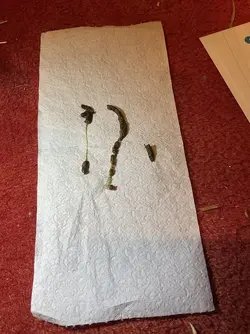Orangefizzypops
New Born Pup
So we recently took our boy (2 years 5 months) to the vet, and he had an operation to remove five bladder stones. Before this operation I assumed his food intake had gone down since he was doing small, thin poos instead of the regular sized ones. Anyway, we took him home from the operation and we were syringe feeding him critical care every 30 mins as the vet had instructed. We did this until we went to bed at around 11:30pm. Woke up at 7 and took him to the vets at 8, vet said he seemed to be doing well and we took him home and gave him a dose of meloxicom and marbocyl (pain relief and antibiotics). Throughout the day I gave him some critical care but he also ate some of his timothy hay and biscuit, so i started giving him less critical care (doctor said I could stop when he was eating normally). he hasn’t been seen drinking any water so I’ve been syringe feeding him some just in case, although he has been peeing. Now onto the part that worries me. He had been doing barely any poos the evening after he had had his operation. I was concerned but thought it was a result of the anaesthetic and decided to keep an eye on it. Fast foward to today. He seemed to be in pain when trying to do a poo (every other poo he has done beforehand he was not in pain, tho the poos themselves were very moist/covered in mucus, and were generally very small and thin in shape). I look at his bum and see there’s a poo stuck in it so I pull it out. Turns out it was a whole string of poos attached to one another by mucus. I’ve read somewhere that this can be a sign of gut failure and I’m very concerned , but I saw somewhere else that this can happen when they’re recovering from an operation? I just want to know if this is a cause for concern, and if so what should i do about it?
This is the first time any of our piggies have gotten sick and I’m horribly concerned, any help is greatly appreciated!
This is the first time any of our piggies have gotten sick and I’m horribly concerned, any help is greatly appreciated!
